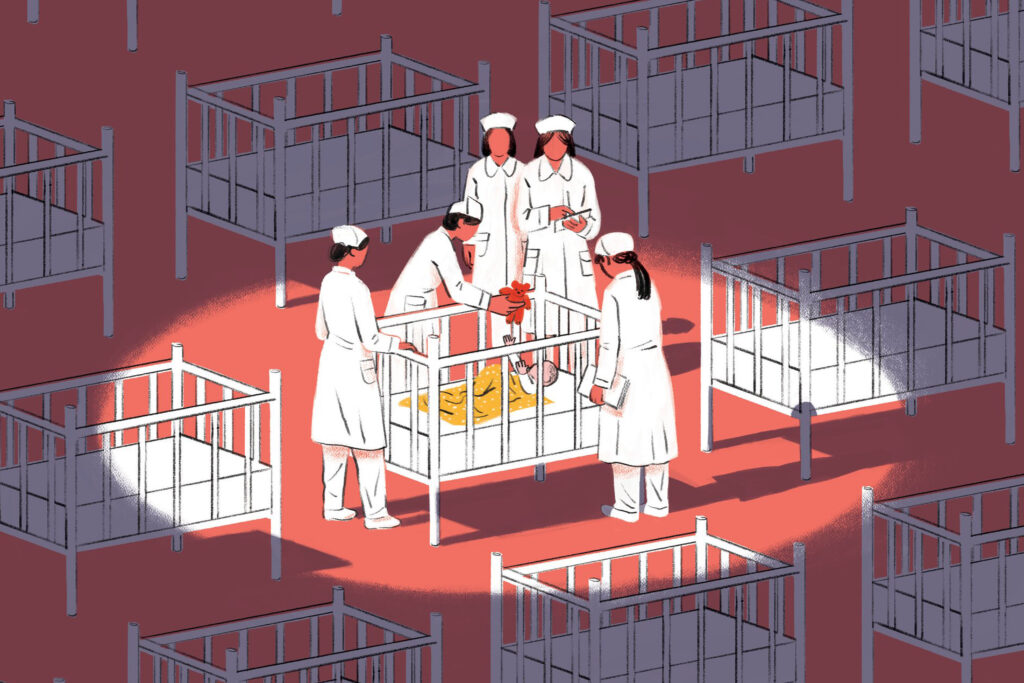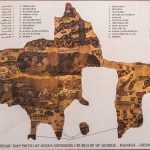
The biggest social experiment in world was jihua shengyu, which means “planned birth program”, which in turn was a euphemism for a more direct term – yitai zhengce, “the one child policy”. How on earth this policy was come about? From Mei Fong’s analysis the policy was a result from the failure of policies such as The Great Leap Forward and Cultural Revolution which put a question to the legitimacy of the ruling Communist Party. The solution was to find legitimacy from the economy, so China planned to modernized its economy.
Economy relied largely to production of material goods and consumption of goods, it is hard to increase production drastically, but consumption can be limited by limiting the population. In China, the famous saying is ren tai duo, “too many people”. In theory, when you increase production and decrease consumption, you can achieve higher per capita income. Only society with moral bankruptcy can accept controlling human population in the same way you control other commodities such as coal and grain. According to Mei Fong, only a totalitarian regime can implement such policy, it will be opposed vehemently if it was to applied to a democratic and open society.
Unfortunately, China at the time does not have a strong social science foundation to study the impact and viability of such policy. Demography along with other social science discipline has been abolished after the Cultural Revolution, it was only revived a year after the policy has been started. The biggest social experiment, thus, was made based on a shaky foundation. Because of the lack of social scientist, China turn to their rocket scientist to study the policy. One of them was Song Jian, ballistic missile specialist trained in Russia and protege of Qian Xuesen, the co-founder of NASA’s Jet Propulsion Lab. It turns out that rocket scientist will determine “how many babies women in China could have”.
Predicting population is not an easy business, forecast are based on three factors: birth, death, and migration. Migration and fertility (birth) is hard to predict, the forecast are fairly accurate for 20-30 years, more than that it is as best as guess work, predicting population growth for next 100 years will be in the realm of science fiction.
Mei Fong was born in Malaysia, a descendant of southern Chinese, she was grateful to be born in Malaysia, as Malaysia already modernized when she was born and the practice of abandoning unwanted girls dis not prevalent. But early on she realized how her father prized son over daughters, he long for a son he never had. She works as a journalist for Wall Street Journal and was sent to China as correspondent.
The strongest point of the book from my point of view, is the issues raised by the author on the human effect of the policy, the human cost that needed to be paid for the economic miracle to take place. Mei Fong brought this topic early on with the earth quake which happened at Sichuan, which killed many “only child” of the Chinese family there, the parent become shidu, which means “lost only”. The loss not only a personal lost, with its emotional toll, their social status in society also degenerate as they will have a hard time buying burial plot or entering nursing home at old age. Mei Fong also re-tell the horrifying story on how the policy was enforced, the most devastating story was how Feng Jianmei, a factory worker, was forced to undergo late-term abortion when she was 7-months pregnant, her depressing photo with dead baby by her side shocked the world.
What are the effects of this policy?
One of the effects of this policy is gender imbalance, with family has to have only one child, many opted for a son. There are various ways of achieving this, among them are killing female baby at birth and aborting female foetuses, these measures are called infanticide and gendercide. The shortage of women increased the commodification on women and increase sex trafficking and prostitution. The shortage of women also created a sex doll industry in China, where large human-size doll were manufactured
The policy also has speed-up China into an aging society, with fewer young working people that need to support growing numbers of old people. As the saying goes “China will grow old before it grows rich”. Although the policy coupled with economic reforms has lifted 500 people above the poverty line, nearly 185 million of its retirees lived with less than a dollar a day. Living as an old people in China is not an easy tasked, with family and clannish values were erased during Cultural Revolution to produces population valuing the state above family, add to this the problem of having only one child to take care of both parent, many old people are left on their own. The policy also re-shaped how people view family structure, some argue that siblings are important as the parent grew old and died, the only child will not have any immediate family relationship left.
The policy also was not monolithic, many rich families can have more kids by paying fines, the one who suffer the most by the brutal enforcement were rural and poor families. The rich also can use birth tourism to have more progeny, they can go to different country to give birth and runs away from paying fines. They also can pay fertility services to have twin and triplets that will be counted as a single birth. Other cruel and bizarre product of the policy is the baby confiscation and child trafficking. China became the largest supplier of babies for adoption to western and American families. The most common cases were babies born without permission was taken by authority, then given to orphanage, before sold to western and international client for adoption.
Although I personally think that the book made a great job especially in elaborating the human impact of the policy, I realized that Mei Fong sees the whole ordeal from western perspective and judge the policy based on western values, she obviously has her bias, but its a good start for people who want to understand the policy, before they embarked into the more detailed academic and scholarly analysis of the policy.
Related Posts
Author of several books including Berfikir Tentang Pemikiran (2018), Lalang di Lautan Ideologi (2022), Dua Sayap Ilmu (2023), Resistance Sudah Berbunga (2024), Intelektual Yang Membosankan (2024), Homo Historikus (2024), DemokRasisma (2025), dan Dari Orientalisma Hingga ke Genosida (2025). Fathi write from his home at Sungai Petani, Kedah. He like to read, write and sleep.





